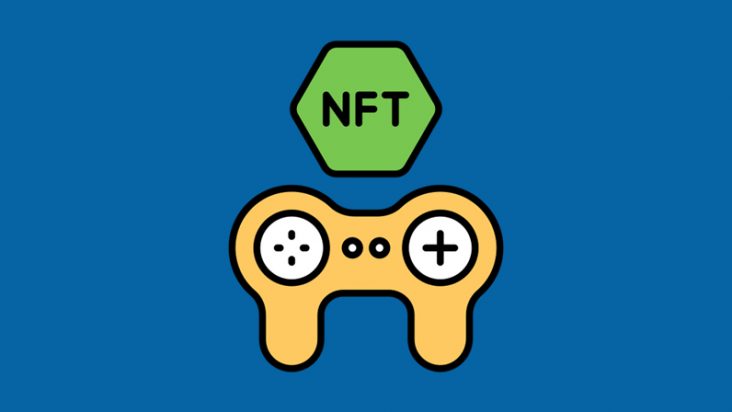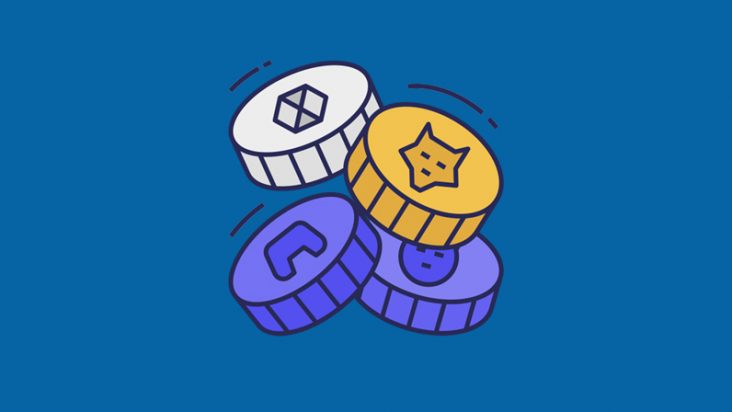
Affiliate marketing is an incredible opportunity for those looking to promote their online products. By leveraging the power of partnerships, businesses can expand their reach and boost sales, while affiliates earn commissions for driving traffic and conversions. However, as with any successful industry, affiliate marketing attracts its fair share of fraudsters. These individuals and entities seek to deceive operators and earn money through dishonest means. Understanding the various types of fraud in affiliate marketing is essential for safeguarding the integrity of this valuable marketing channel and ensuring that all participants can benefit fairly and transparently.

In this article, we will explore the types of affiliate fraud that exist, examining real-world examples and detailing the methods used by fraudsters. With this information, readers will gain insights into the measures needed to safeguard their business, maintain compliance, and foster an environment where legitimate affiliates can thrive.
Restrictions for iGaming Operators in Affiliate Marketing
Before starting affiliate marketing, iGaming operators need to be aware of several restrictions and guidelines to ensure compliance and maintain a fair and responsible gaming environment.
While many consider affiliate marketing a legitimate and rewarding business model, questions like “Is affiliate marketing legit?” and “Is affiliate marketing a pyramid scheme?” still circulate, often due to the industry’s complexities and the presence of fraud. By shedding light on these issues, our goal is to bring industrial clarity to the forefront, helping operators, affiliates, and regulators better navigate the challenges of the affiliate marketing ecosystem. Here are some key restrictions, along with examples of countries where specific legislation applies:
- Geographical Restrictions: Operators must ensure that their affiliate marketing efforts comply with the legal requirements of each jurisdiction where their services are promoted. For example, in the United States, the legality of online gambling varies by state, with some states like New Jersey and Pennsylvania allowing it, while others, such as Utah and Hawaii, prohibit it entirely.
- Age Verification: Marketing materials must not target minors. In the United Kingdom, the Gambling Commission mandates strict age verification processes to prevent individuals under 18 from gambling online. This includes ensuring that advertisements do not appeal to children or young people.
- Advertising Content: All marketing content should be truthful, non-deceptive, and not promote excessive or irresponsible gambling behavior. For instance, Sweden’s Gambling Authority, Spelinspektionen, has strict guidelines against misleading advertisements and encourages promoting moderation in gambling.
- Transparency and Disclosure: Affiliates must clearly disclose their relationship with iGaming operators. The Australian Communications and Media Authority (ACMA) requires transparency in advertising to maintain trust and integrity, ensuring that promotional content is clearly identifiable as such.
- Responsible Gambling Measures: Operators should promote responsible gambling practices in their marketing materials. In Canada, the Alcohol and Gaming Commission of Ontario (AGCO) emphasizes the importance of responsible gambling messages and the availability of self-exclusion programs.
- Compliance with Advertising Codes: Affiliates and operators must adhere to advertising codes and standards set by regulatory bodies. In the Netherlands, the Kansspelautoriteit (KSA) enforces advertising codes that include guidelines on the portrayal of gambling and the use of endorsements.
- Monitoring and Auditing: Regular monitoring and auditing of affiliate activities are essential to ensure compliance with all regulations. For example, Malta Gaming Authority (MGA) requires operators to have systems in place to detect and prevent fraudulent activities, ensuring affiliates follow set guidelines.
Types of Frauds in Affiliate Marketing
Malware
What is Malware?
Malware, short for malicious software, refers to any software intentionally designed to cause damage to a computer, server, client, or computer network. It includes various types such as viruses, worms, Trojan horses, ransomware, spyware, adware, and more. These malicious programs can steal, encrypt, delete sensitive data, alter or hijack core computing functions, and monitor users’ computer activity without their permission.
Signs of Malware on Your Computer
Signs that your computer might be infected with malware include slow performance, frequent crashes or freezing, unexpected pop-up ads, new toolbars or icons you didn’t install, redirected internet searches, and the sudden appearance of unknown programs. Additionally, you may notice an increase in network activity or excessive use of system resources, such as CPU or memory, even when no significant tasks are running. Unusual error messages and changes to your homepage or browser settings without your consent are also indicative of a malware infection.
How Abusive Affiliates Use Malware to Deceive Operators in the iGaming Niche
In the iGaming niche, abusive affiliates can use malware to deceive operators by installing malicious software on users’ devices. This malware can drop affiliate cookies without the users’ knowledge, making it appear as though the affiliate has referred the users to the iGaming site. As a result, the affiliate fraudulently earns commissions on deposits and wagers made by these users. This practice not only diverts rightful earnings from legitimate affiliates but also undermines the trust between operators and their affiliate partners. Additionally, malware can track user behavior, steal sensitive information, and manipulate game outcomes to further exploit the operator and users.
Cookie-stuffing
Cookie stuffing is a deceptive technique used in affiliate marketing where a person or an entity places affiliate cookies on a user’s computer without their knowledge or proper consent. These cookies are designed to generate affiliate commissions for the person or entity engaging in the practice, often bypassing legitimate affiliates who should receive the credit for a sale or lead. This practice is considered unethical and is against the terms and conditions of most affiliate programs.
Types of Cookie Stuffing
- Hidden Iframes: This involves loading an invisible iframe on a webpage that contains the affiliate link. The user is unaware that they have clicked the affiliate link, but the cookie is still set on their device.
- Pop-ups and Pop-unders: Similar to hidden iframes, these techniques involve opening pop-up or pop-under windows that load affiliate links. While users might notice these windows, they often close them without realizing an affiliate cookie has been placed.
- JavaScript Injections: Using JavaScript, a website can automatically generate and click on affiliate links without user interaction. This can happen when users visit a webpage that runs a script to set the affiliate cookie.
- Email Cookie Stuffing: This method involves sending emails with embedded affiliate links. When users open the email, the affiliate link is loaded and the cookie is set.
- Adware and Spyware: Some software applications are designed to automatically set affiliate cookies when installed on a user’s device. These applications can run in the background and set cookies without any user interaction.
Example: A user looking to buy clothes online from wowclothers.com finds a web extension called “50 Off Coupons,” which offers discounts on purchases from the website. Intrigued by the potential savings, the user downloads the extension.
However, the activity of this extension resembles that of adware. Later, when the user visits guysme.com, the pre-installed adware triggers a pop-up on their browser and secretly drops an affiliate cookie in the background. This allows the affiliate to earn commissions on all subsequent sales made through the browser. Should you be paying affiliates for sales that they did not promote or for traffic they did not generate?
Most Common Cases of Affiliate Frauds
The industry, while beneficial, is susceptible to various types of affiliate fraud. Understanding these frauds and recognizing real-world examples can help safeguard the integrity of the marketing channel.
1. Click Fraud
Description: Click fraud occurs when an affiliate generates fake clicks on pay-per-click (PPC) ads, leading to inflated clicks that do not result in genuine customer interest or conversions.
Example: In 2014, Chinese e-commerce giant Alibaba reported significant issues with click fraud. Fraudsters used bots to generate fake clicks on ads, severely impacting advertisers’ budgets without delivering real customer engagement.
2. Ad Hijacking
Description: Ad hijacking involves affiliates duplicating legitimate ads and redirecting traffic to their own links, thereby stealing commissions meant for the original advertiser.
Example: In 2018, a major case involved several affiliates hijacking ads from the Rakuten Marketing network. These affiliates copied the ads and redirected clicks through their own affiliate links, resulting in stolen commissions.
3. Fake Leads
Description: Fake leads fraud occurs when affiliates generate false leads through the submission of bogus contact information, leading to wasted resources and ineffective marketing efforts.
Example: In 2019, a company called LeadCrunch found that a significant portion of the leads provided by some of their affiliates were fake. These affiliates used automated scripts to submit false lead information, impacting the company’s marketing efficiency and budget.
4. Brand Bidding
Description: Brand bidding involves affiliates bidding on a brand’s keywords in search engines to redirect traffic intended for the brand’s official site to their affiliate links.
Example: In 2017, a case involving an that bidding on the brand keywords of a well-known travel company came to light. The affiliate directed traffic to their own site using the company’s name, capturing commissions deceitfully. Reference
5. Traffic Laundering
Description: Traffic laundering is the process of funneling illegitimate traffic through legitimate channels to disguise its origin and make it appear genuine.
Example: In 2016, the Methbot operation, run by a group of Russian hackers, laundered traffic through fake websites. This operation generated up to $5 million a day in fraudulent ad revenue, impacting numerous advertisers.
Frauds in IGaming Industry
Hackers in affiliate marketing do not always directly attack affiliate programs. More often, their goal is to hack websites to manipulate payment systems and extract profits. One common scenario involves interfering with the operations of a casino website. Hackers might deposit a small amount, say $100, and use a hack to increase it to $100,000. They then cautiously withdraw the money in small amounts to avoid drawing attention.
Payment system operators typically work with reserves to ensure fast fund transfers, but these reserves often become the target of hackers. Using commands to withdraw money from these reserve accounts, attackers drain funds, causing casinos to lose their deposits. It is particularly difficult to recover the money if transactions involve cryptocurrencies, as such transfers are nearly irreversible.
Hackers targeting casinos usually seek vulnerabilities in security systems to gain access to confidential information or manipulate processes. They may hack databases containing personal user information, including documents and photos, or interfere with the site’s operations to secure a win for themselves. Some hackers find vulnerabilities and offer to sell them to casino operators, while others sell access to the data on black markets. Vulnerabilities like SQL injections allow hackers to connect to internal systems and use the obtained information for their own purposes.
Abusers in affiliate marketing are malicious actors who exploit various loopholes in casino systems and advertising programs for profit without providing real value. Their methods range from creating fake accounts to filing false claims against casinos in an attempt to extract money.
One of the most common tactics used by abusers is manipulating reviews and casino reputations. They create fake accounts, fabricate stories about casinos not paying out winnings or engaging in fraudulent activities, and post these false claims on specialized forums and platforms frequented by the casino’s target audience. Sometimes, abusers even pay for these posts to make the information appear legitimate and widely spread. The goal of these actions is to pressure the casino into paying for the removal of negative reviews or restoring its reputation.
Another example of abuser tactics involves exploiting licensing systems. In certain jurisdictions, such as Malta, license organizers require casinos to hold deposit funds in case of player claims. If a player complains and the operator does not resolve the issue, the licensor may refund the player from the casino’s deposit. Abusers actively exploit this mechanism to receive compensation by filing fake complaints and manipulating the process for profit.
In addition, professional teams sometimes offer “dirty” traffic — low-quality traffic that doesn’t bring real results but appears legitimate on the surface. These teams may mislead inexperienced casino operators, promising high-quality traffic and receiving payment, even though the traffic brings neither registrations nor deposits.
Abusers can create significant problems for casinos, as such fraudulent schemes damage reputations and lead to financial losses. In most cases, companies try to avoid conflict by resolving issues out of court or negotiating directly with the players.








